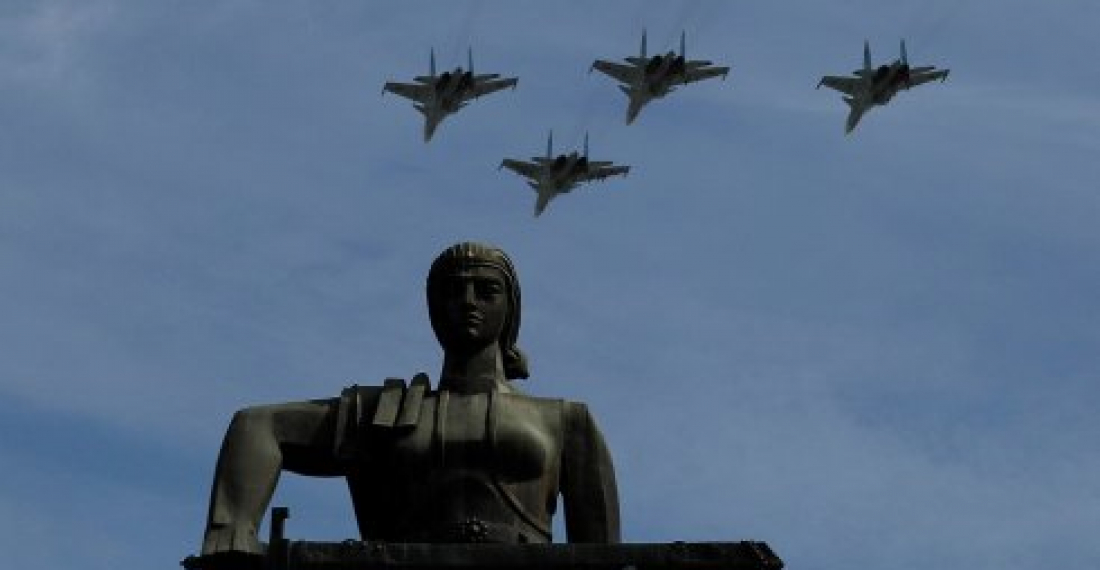Armenia celebrated the 29th anniversary of its modern independence on Monday (21 September)
Celebrations included a flyover by Armenian airforce aircraft over its capital Yerevan.
On the occasion the president and prime minister received messages of congratulations from a number of world leaders. The president of Arm,enia also appointed four new Major-Generals in the Armenian army.
Prime minister Nikol Pashinyan used the occasion to launch his new Armenia transformation strategy - described as a pan-Armenian agenda directed for Armenia's development by 2050.
"The 30 years strategy of Armenia's transformation is very important for us, in order to understand what we want, where we move on and how we imagine our Armenia in 2050", Pashinyan said at the launch event.
source: commonspace.eu
photo: A flyover by Armenian airforce aircraft over the capital Yerevan marked the 29th anniversary of Armenian indpeendence on Monday 21 September (picture courtesy of the press service of the Government of Armenia).







